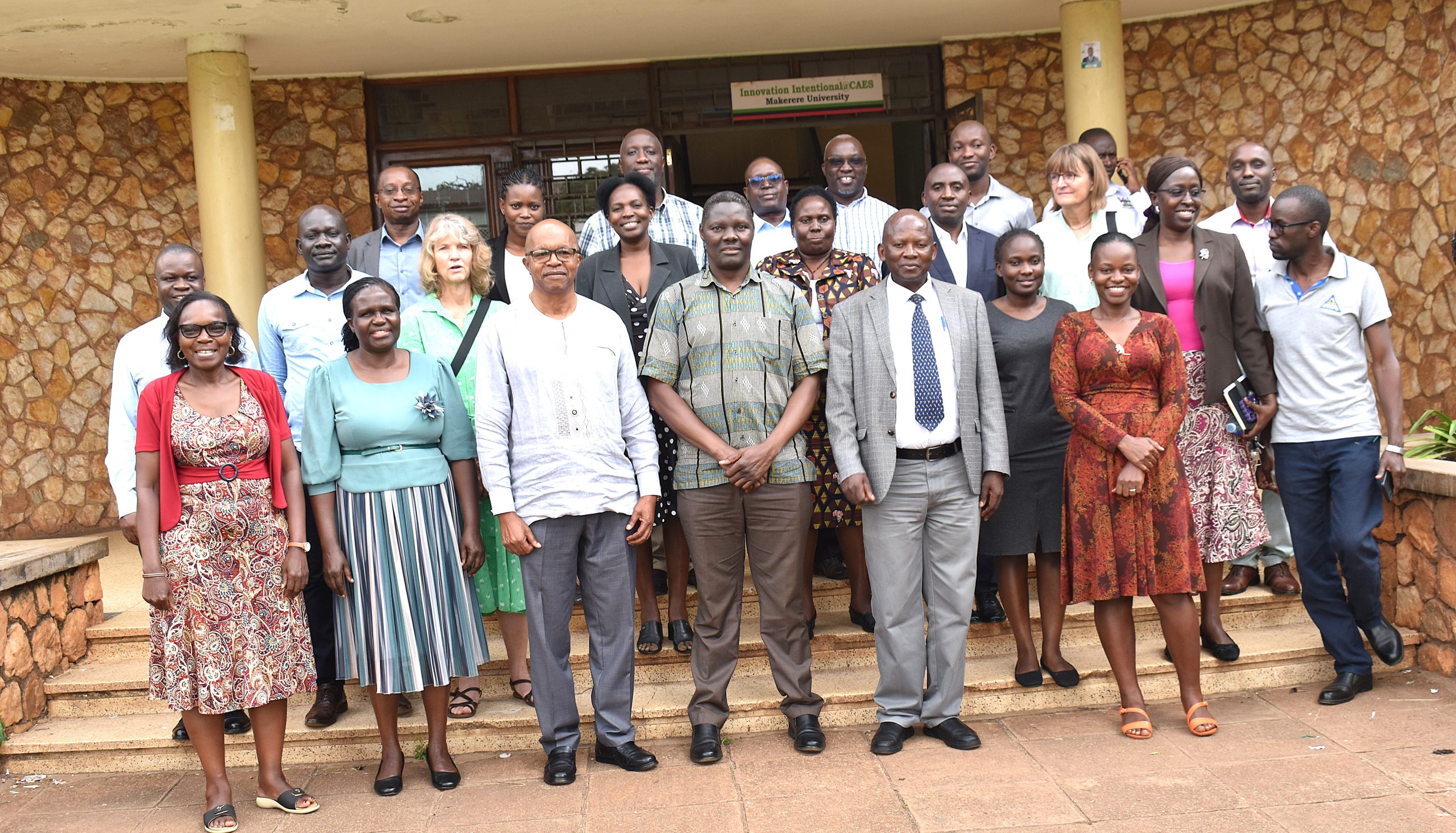
*****Funded by the Danish Ministry of Foreign Affairs through DANIDA, the Healthy Soy Project seeks to develop sustainable, affordable, and nutritious soy-based food solutions to help combat stunting in Uganda and other climate-vulnerable regions. The Project inception meeting was held on 15th August 2025 at CAES, Makerere University.
Overview
Child malnutrition remains one of the most pressing public health challenges worldwide. According to the World Health Organization (WHO), more than 148 million children under the age of five were affected by stunting in 2023, a condition caused by chronic under-nutrition that impairs both physical and cognitive development. The United Nations Sustainable Development Goal 2 aims to end all forms of malnutrition by 2030, but climate change, rising food insecurity, and deepening inequality are making this goal increasingly difficult to achieve.
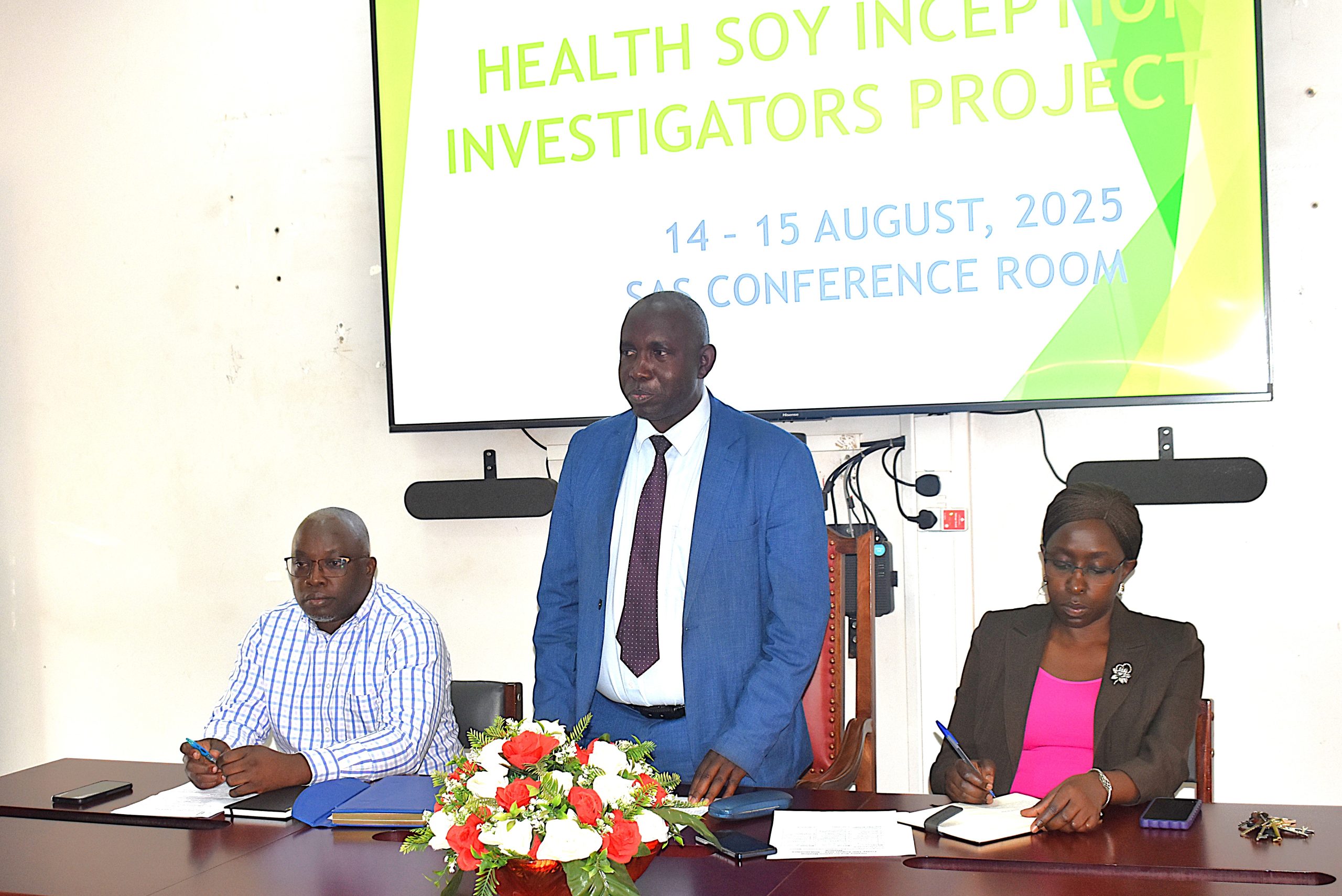
Expert reports indicate that as the global climate crisis accelerates, its ripple effects are being felt most acutely in the Global South. Prolonged droughts, erratic rainfall, and frequent natural disasters are reducing crop yields, diminishing nutrient density in food, and driving up food prices. For smallholder farmers, who form the backbone of food production in many developing countries, these changes are devastating. Without the resources to invest in irrigation or climate-adaptive technologies, they are hit hardest by agricultural losses.
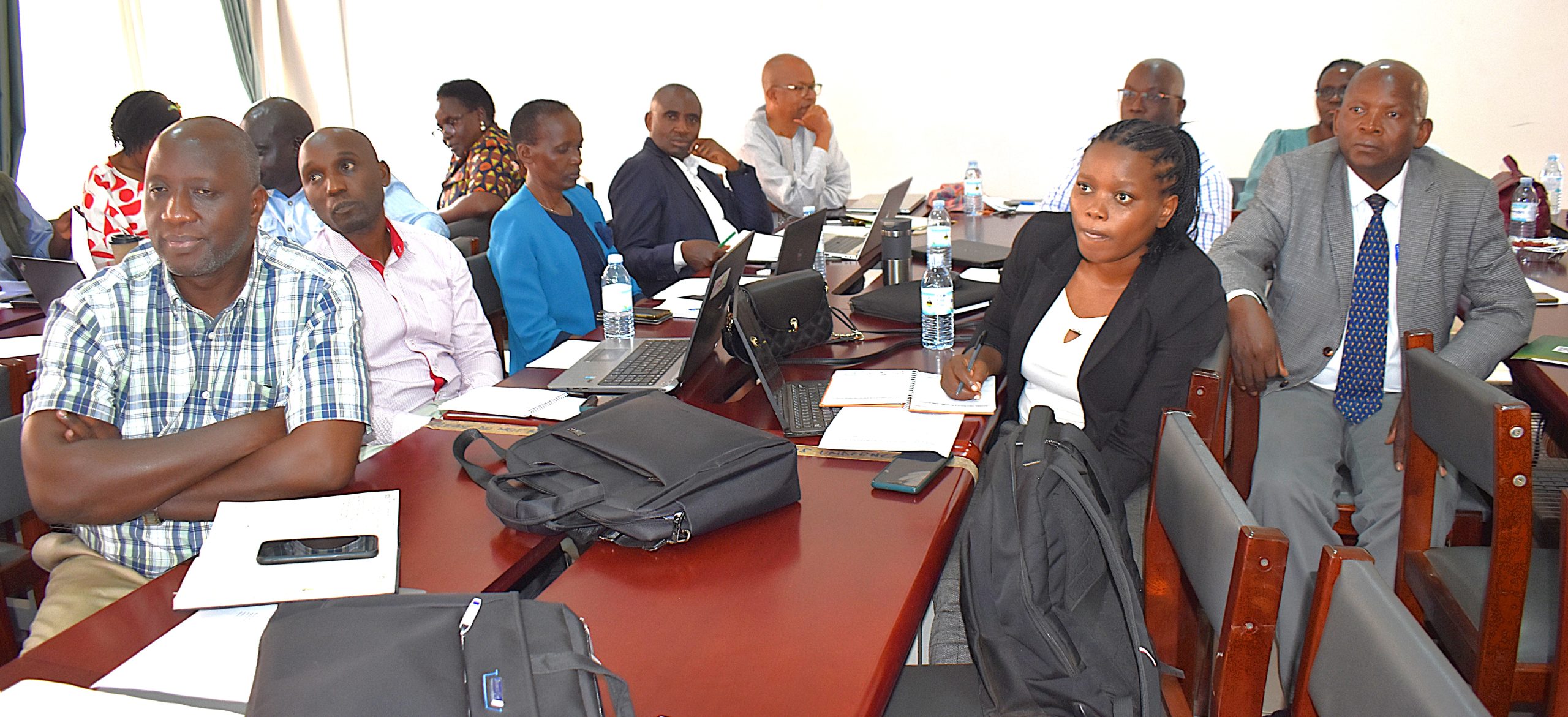
The burden of climate-induced food insecurity and malnutrition is not shared equally. Children are particularly vulnerable, as their growth demands a consistent intake of high-quality nutrients. Women, meanwhile, are doubly impacted. They are often both food producers and the primary caregivers responsible for child nutrition. These gendered and generational inequalities are deepening as food systems falter under environmental stress.
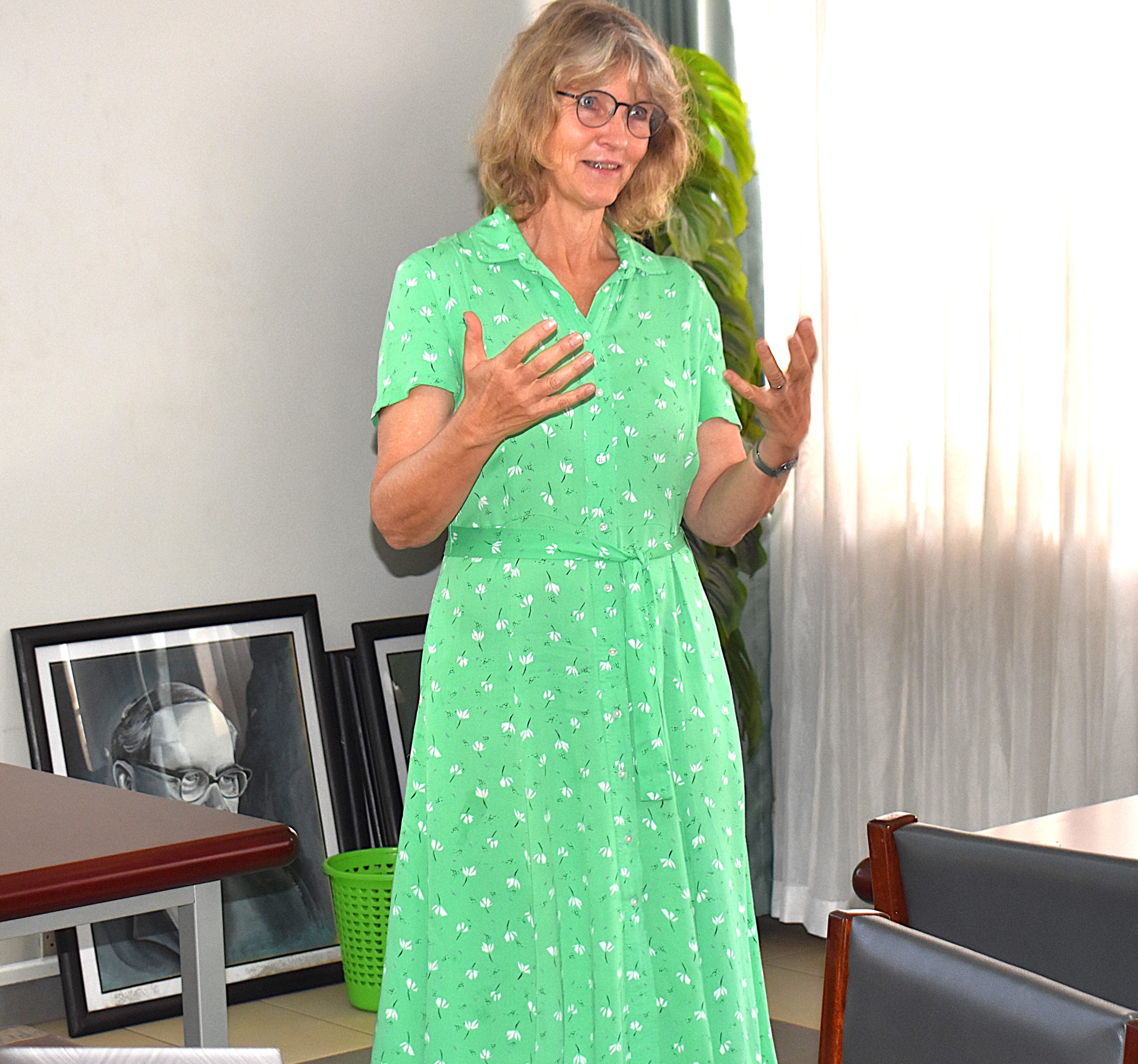
Stunting and the Need for High-Quality Protein
Stunting in children is one of the most visible forms of malnutrition. Once it occurs, reversing it is challenging, though not impossible. For children affected by stunting to catch up in growth, their diets must include high-quality proteins, which are essential for muscle and tissue development.
Animal-source foods such as milk, eggs, and meat provide proteins with the highest biological value. However, in low-income settings, these foods are often prohibitively expensive or unavailable. Soybeans offer a promising alternative – they are a plant-based source of relatively high-quality protein, widely grown and consumed in many parts of the world. However, soy is not without limitations. Its protein bioavailability can be reduced by natural compounds known as anti-nutrients, which inhibit digestion and absorption.
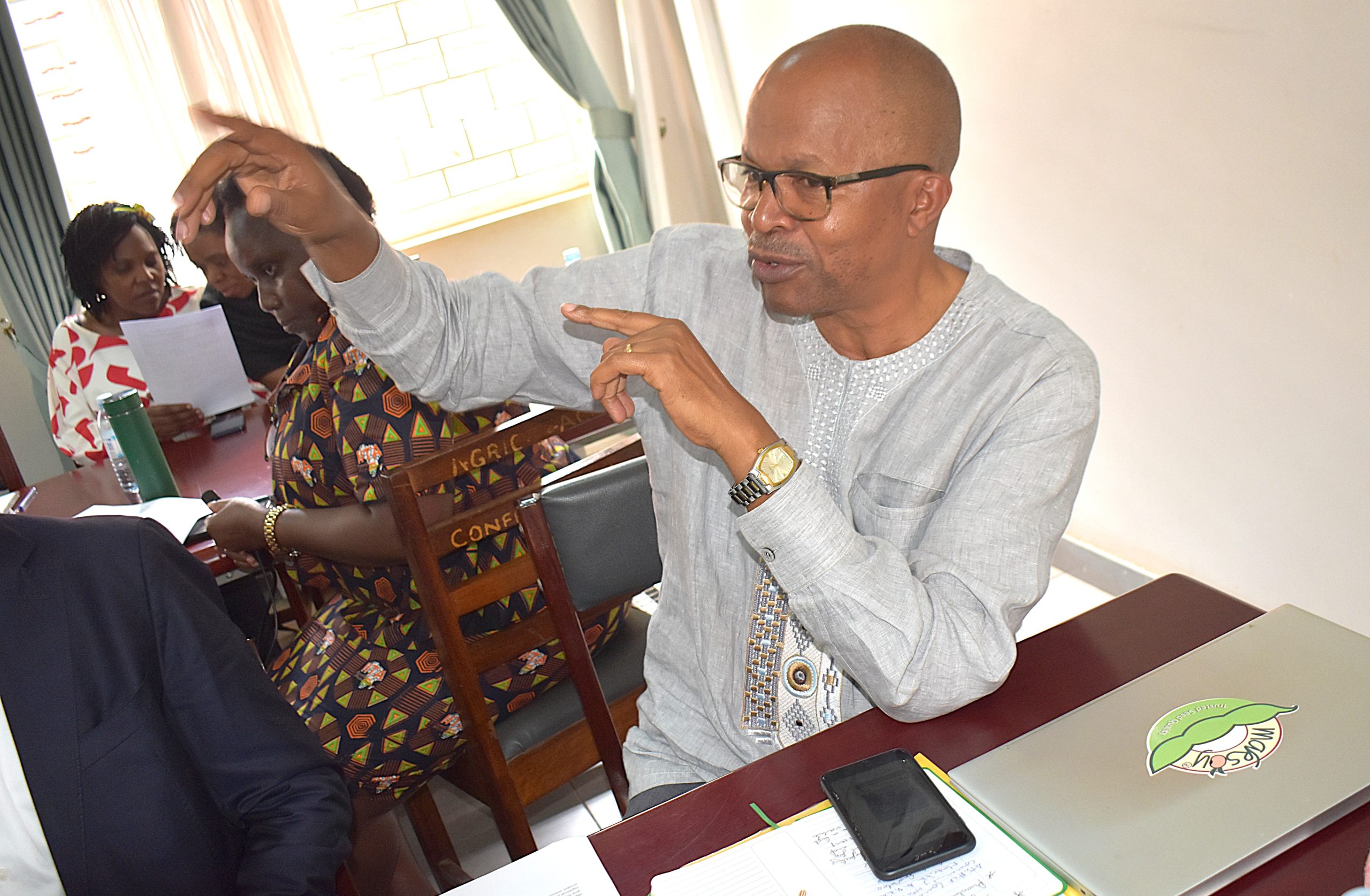
The Healthy Soy Project: A Science-Based Solution for Sustainable Nutrition
In response to this challenge, Makerere University, in collaboration with partners and with funding from the Danish Ministry of Foreign Affairs through the Danish International Development Agency (DANIDA) has launched an innovative research project titled Climate-resilient soybean for improved growth and health of children in Uganda (Healthy Soy). This multi-year project seeks to develop sustainable, affordable, and nutritious soy-based food solutions to help combat stunting in Uganda and other climate-vulnerable regions. The University of Copenhagen, Denmark is leading the project, with Makerere University and RECO Industries Limited as partners. The overall PI of the Project is Prof. Benedikte Grenov from the University of Copenhagen. At Makerere University, the project is coordinated by Prof. Phinehas Tukamuhabwa. Other project members include Assoc. Prof. Nanna Roos and Prof. Inge Tetens from the University of Copenhagen; Assoc. Prof. Dorothy Nakimbugwe and Assoc. Prof. Ezekiel Mupere from Makerere University; Mr. Alex Kisembo from RECO Industries Limited; and Prof. Daniel Tomé from Université Paris-Saclay, France.
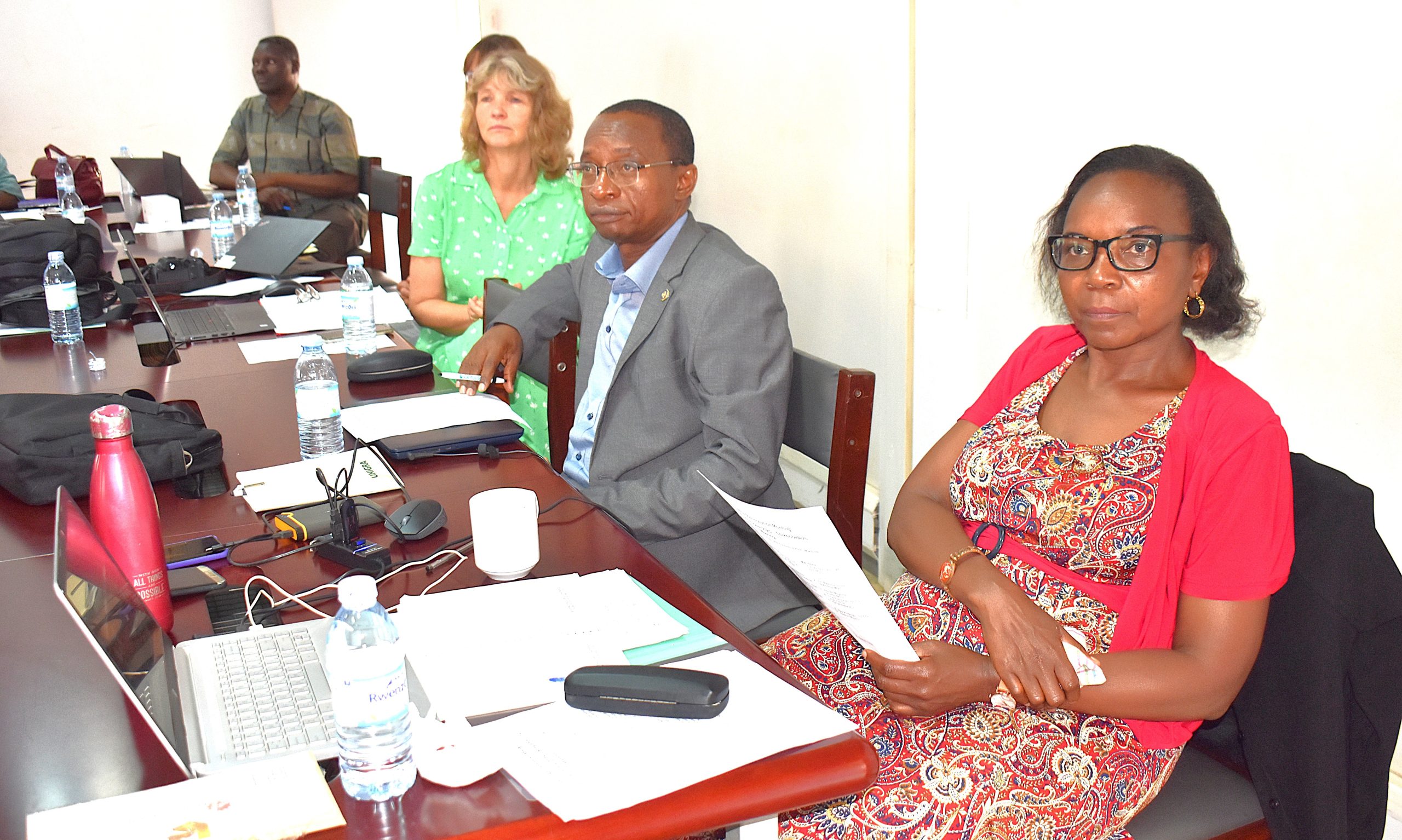
The Healthy Soy project is structured around four key work packages
WP1 – Selecting Climate-Resilient, Nutrient-Rich Soybean Varieties
Researchers will identify and develop soybean strains that are both resilient to climate stressors and contain high levels of protein with reduced anti-nutrient content, making them more suitable for vulnerable populations.
WP2 – Enhancing Protein Bioavailability through Food Processing
Advanced food processing technologies will be employed to reduce anti-nutrient levels and improve the bioavailability of soy protein. The project will also evaluate how effectively soy protein supports catch-up growth in children affected by stunting.
WP3 – Developing Local Soy-Based Food Supplements
Working closely with local communities and food producers, the project will design and test new soy-based supplements tailored to local dietary habits. These products will be tested for their impact on child health and growth.
WP4 – Building Local Research Capacity and Sharing Knowledge
Capacity-building is a core element of Healthy Soy. The project will invest in training Ugandan researchers, strengthening local institutions, and disseminating findings to farmers, policymakers, health professionals, and other stakeholders across the region. At Makerere University, the project is supporting 3 PhD fellows namely: Ms. Nashim Nassanga from the Department of Crop Science and Horticulture, Mr. Amos Asiimwe from the Department of Food Technology and nutrition, and Ms. Prudence Ainomugisha from the College of Health Sciences. Ms. Nassanga will focus on identifying climate-smart soybean breeding lines for adaptability and farmers’ acceptability under severe climate conditions in Eastern, Northern, and Western Uganda; Mr. Asiimwe will develop soybean processing protocols to reduce anti-nutrients, improve soy protein bioavailability, and estimate its potential to support catch-up growth in children with stunting; and Prudence Ainomugisha will examine the effects of locally produced soy-based LNS on the growth and health of children with stunting.
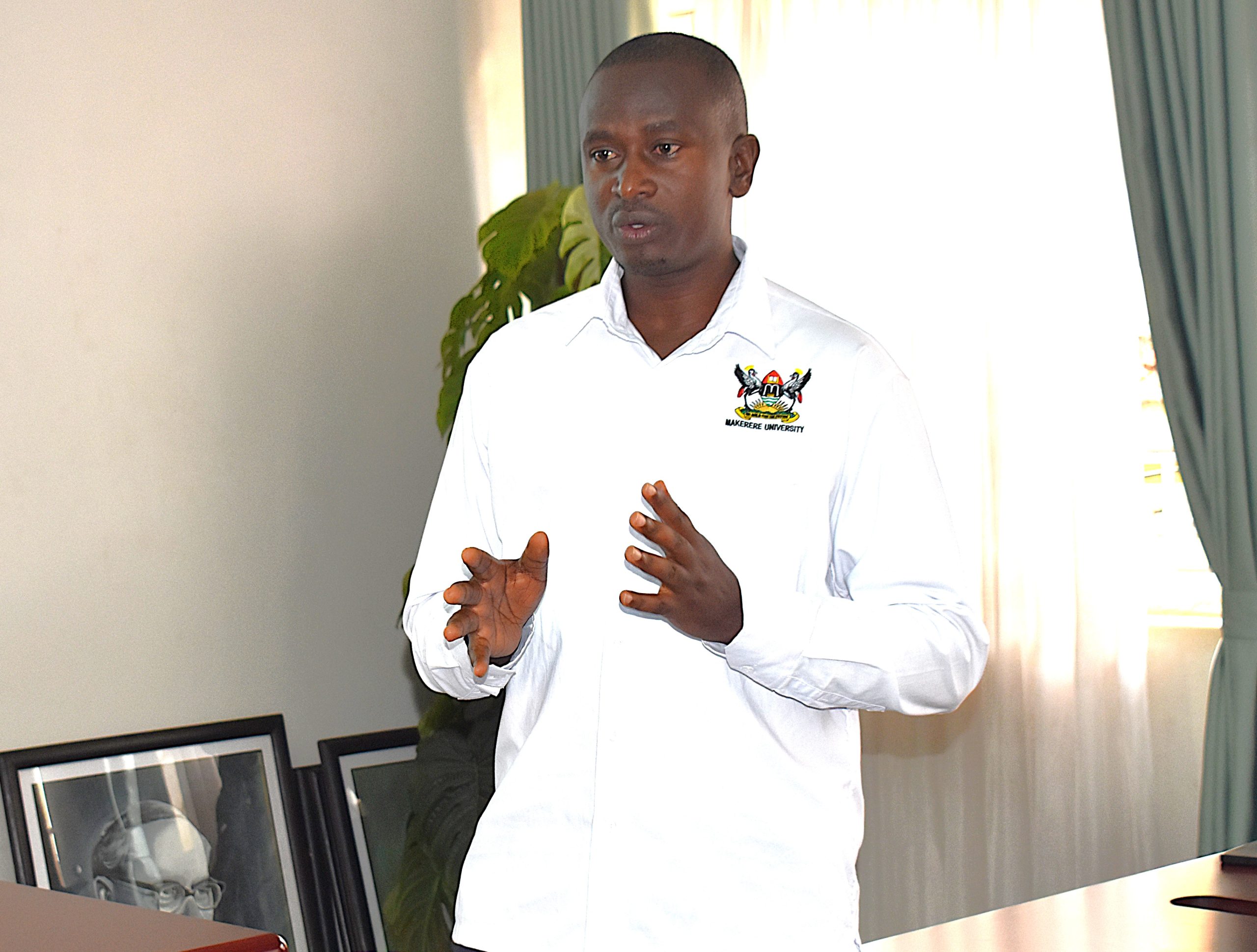
The Healthy Soy Project Inception Meeting
On 15th August 2025, the project team held an inception meeting to discuss strategies for its implementation. The session brought together representatives from all partner institutions who shared a detailed overview of their respective roles, and expected contributions to the initiative. The discussions focused on aligning stakeholder roles, clarifying project objectives, and ensuring a coordinated approach to execution.
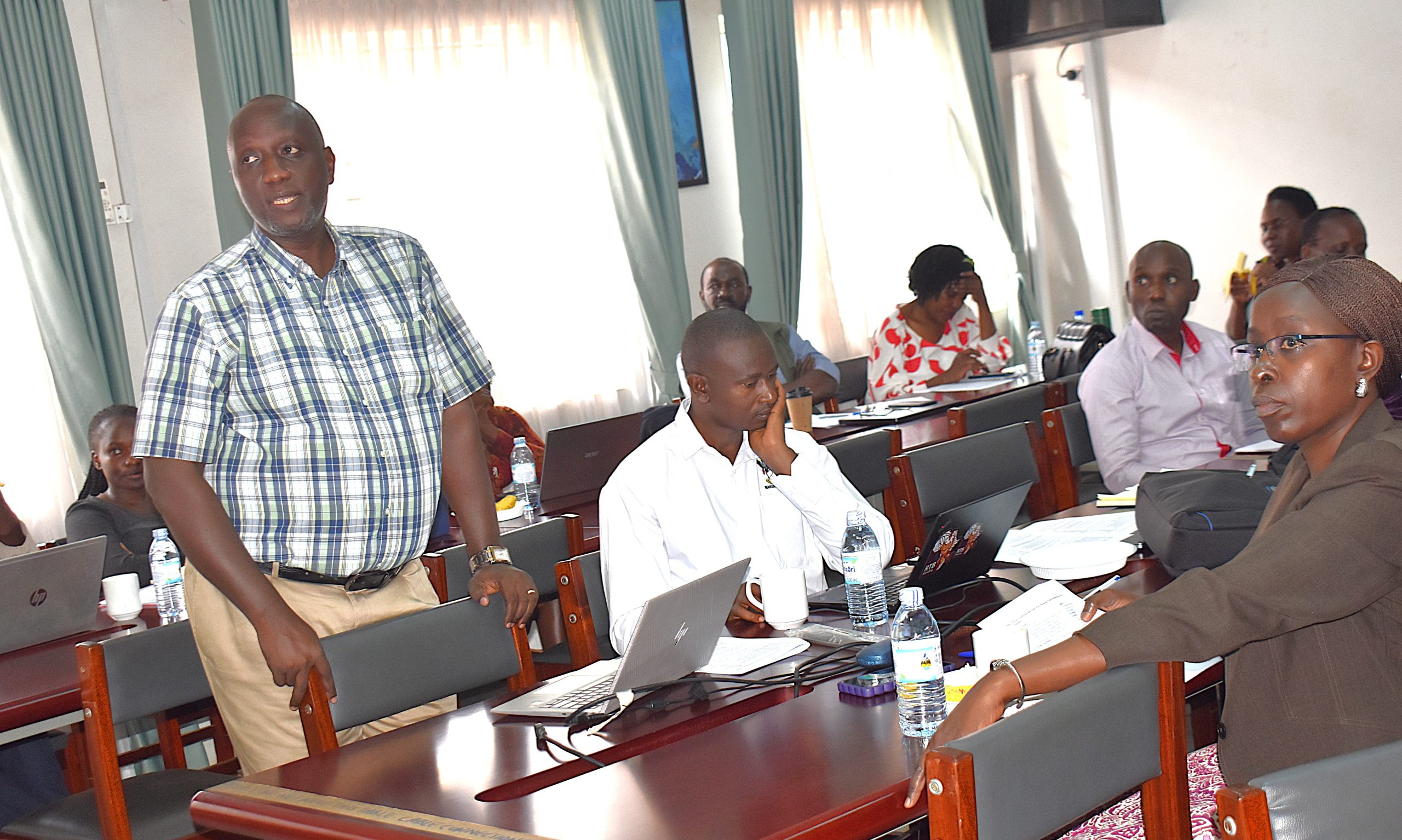
During the meeting, Prof. Benedikte Grenov, the Principal Investigator, delivered a comprehensive overview of the project. She emphasized the collaborative nature of the project and highlighted the importance of each stakeholder’s role in achieving the intended outcomes. Her presentation set the stage for subsequent contributions from each partner institution, outlining their respective roles and planned activities within the project.
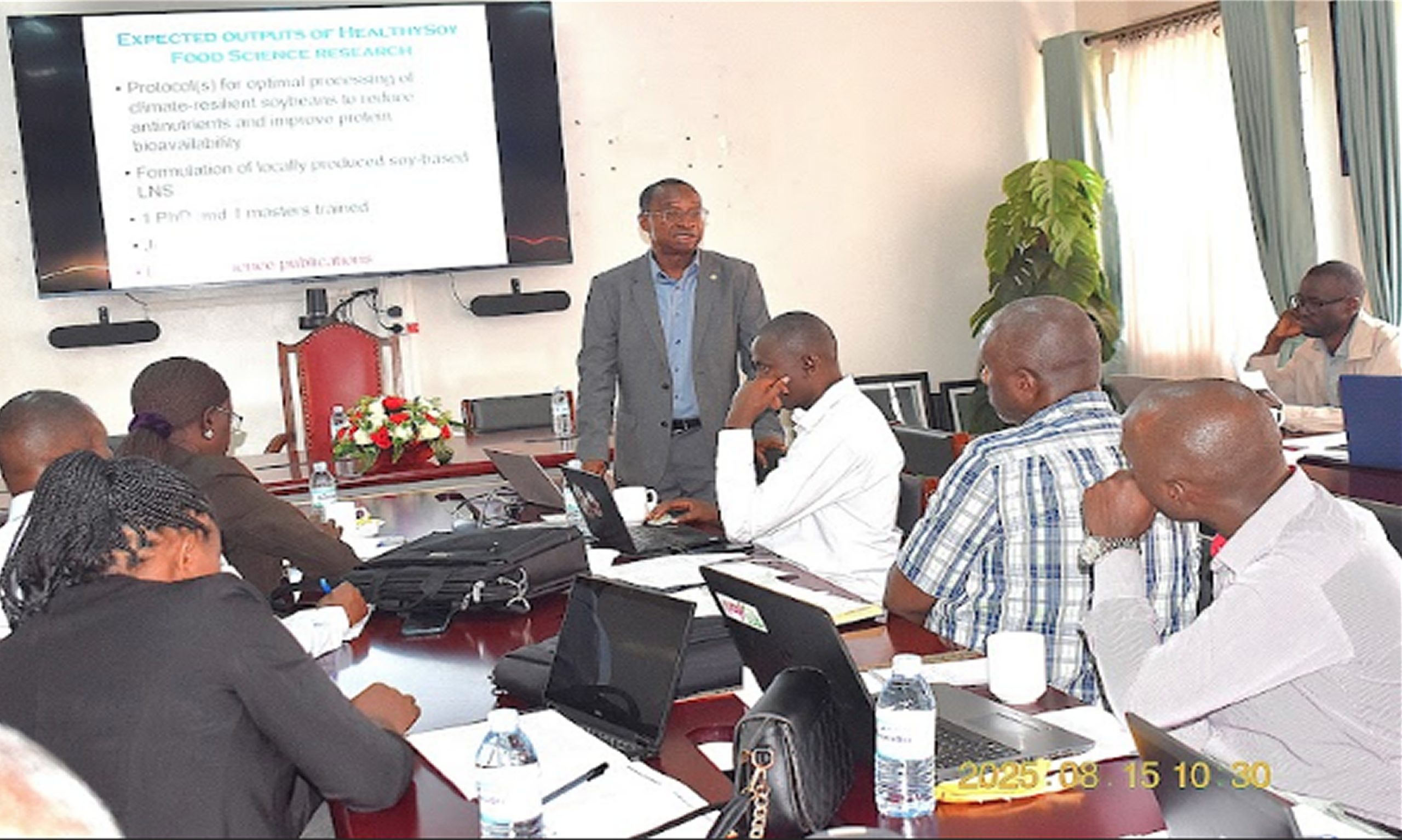
Dr Mildred Ochwo Ssemakula, Prof. John Muyonga, and Dr Robert Mugabi from Makerere University Departments of Crop Science and Horticulture, and Food Technology and Nutrition respectively, briefed the team on their (Departments’) role in the soybean value chain, while Dr Ephraim Nuwamanya from the Makerere University Centre for Soybean Improvement and Development (MAKCSID) shared insights into their ongoing research activities, particularly focused on developing climate-resilient soybean varieties and how these efforts align with the goals of the Healthy Soy Project. The meeting also featured a presentation on the activities of the Child Health Development Centre (CHDC) and its role in the project. Based within the College of Health Sciences at Makerere University, the CHDC will support the training of a full-time PhD fellow who will coordinate and implement a randomized controlled clinical trial (RCT) involving 300 children affected by stunting.
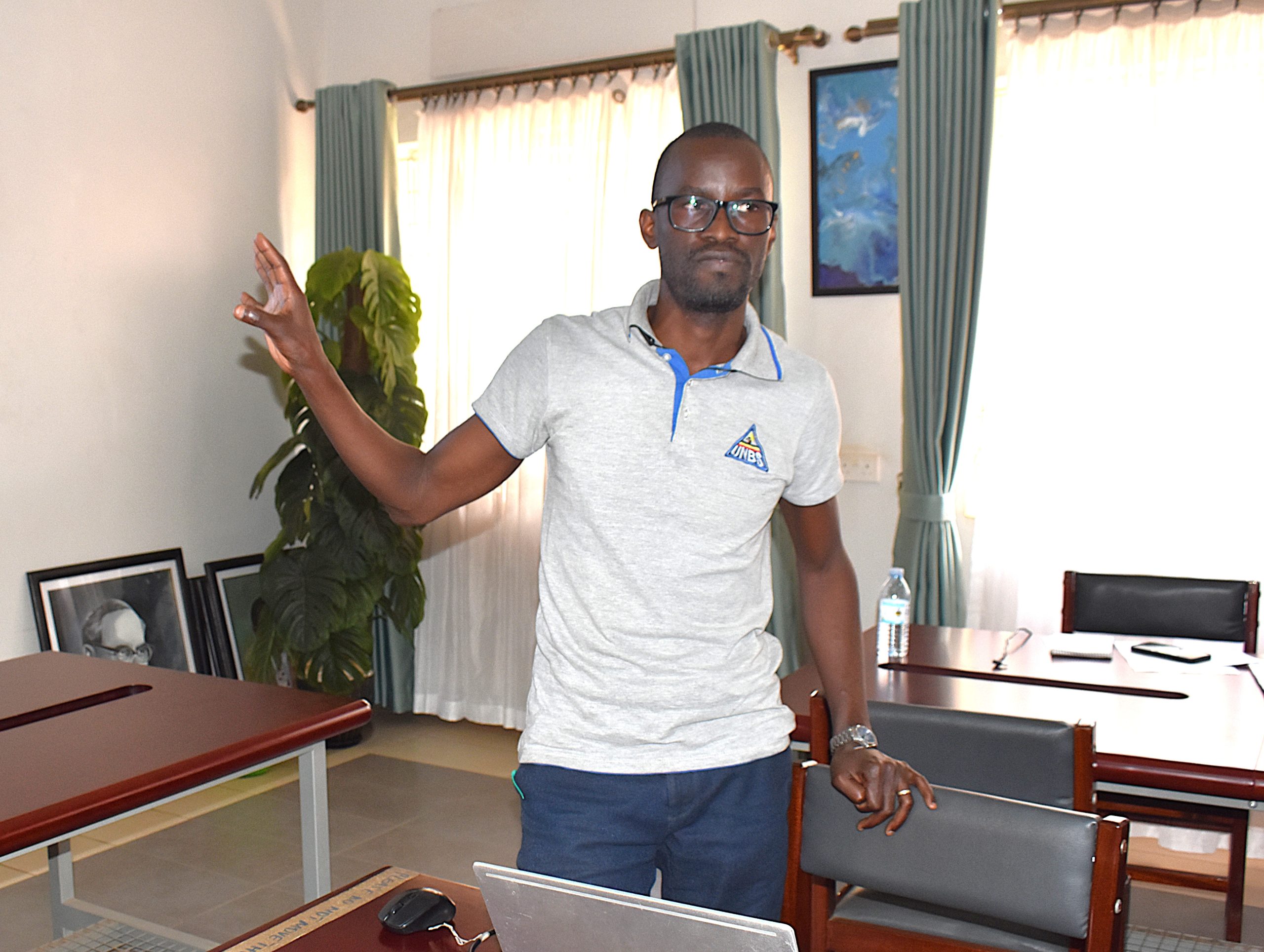
The representative from RECO Industries Limited, Mr. Alex Kisembo shared their experience in soybean processing and outlined their planned contribution to the project’s product development streams. Additionally, the integration of the Healthy Soy initiative into the national nutrition programming was discussed, with an emphasis on aligning it with priority areas within the health sector. The roles of the Ministry of Agriculture, Animal Industry and Fisheries (MAAIF) and the Uganda National Bureau of Standards (UNBS) were also presented, particularly focusing on their support for soybean development through policy formulation, quality assurance, and regulatory processes, as well as their planned contributions to the project’s implementation.
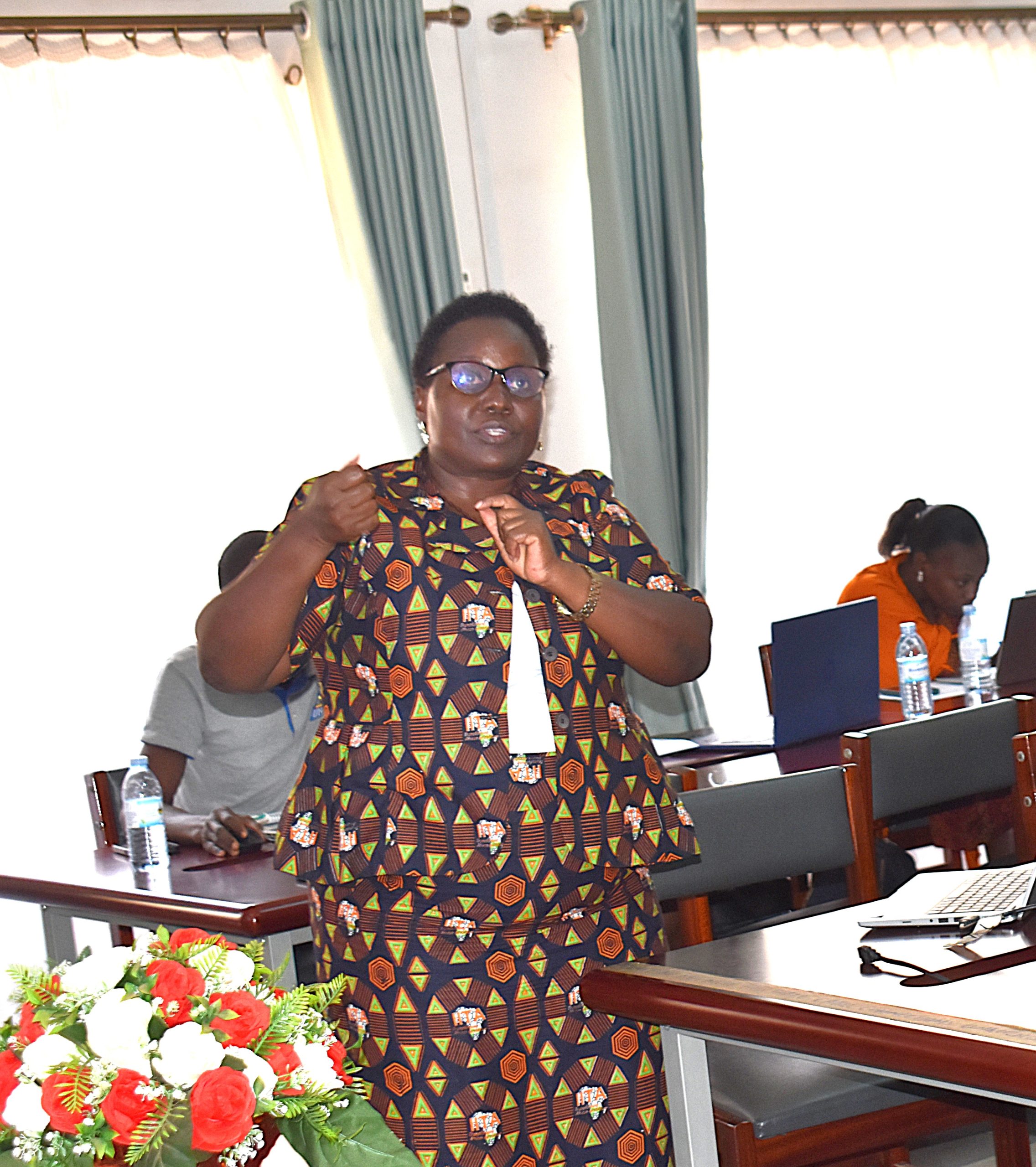
Prof. Charles Masembe briefed participants on the reporting and accountability procedures of the Makerere University Grants Administration and Management Support Unit (GAMSU).
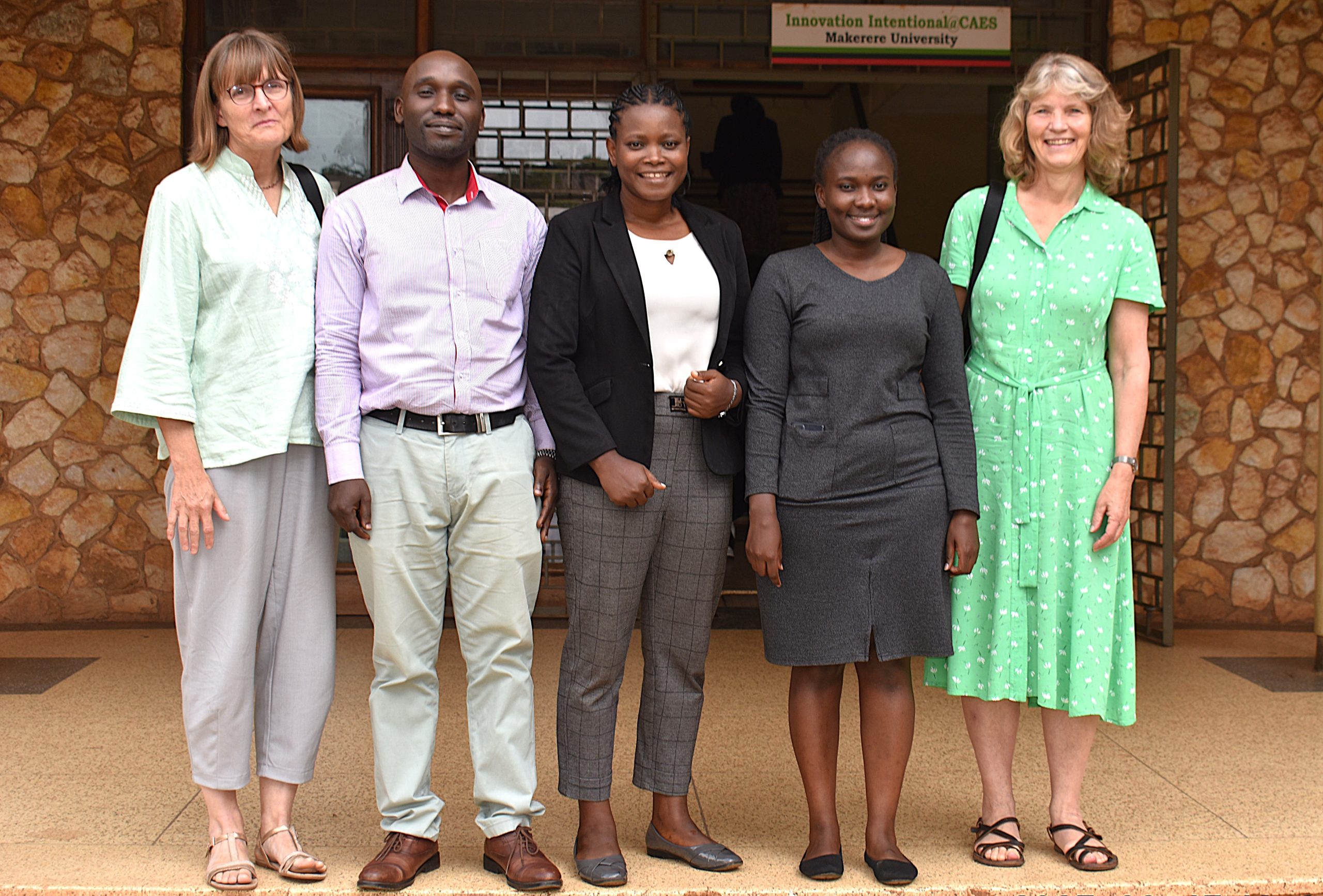
The meeting was moderated by Prof. Phinehas Tukamuhabwa and Dr Jenipher Bisikwa from the Department of Crop Science and Horticulture, College of Agricultural and Environmental Sciences (CAES), Makerere University.
FINAL ARTICLE ON HEALTHY SOY PROJECT INCEPTION MEETING HELD ON 15TH AUGUST 2025
Link to project inception meeting pictorial:
https://drive.google.com/drive/folders/1oTo8rhX89Nt1uXy3W0vVRUWkz5vi8WGg?usp=sharing
Written By Hasifa Kabejja, Principal Communication Officer CAES

